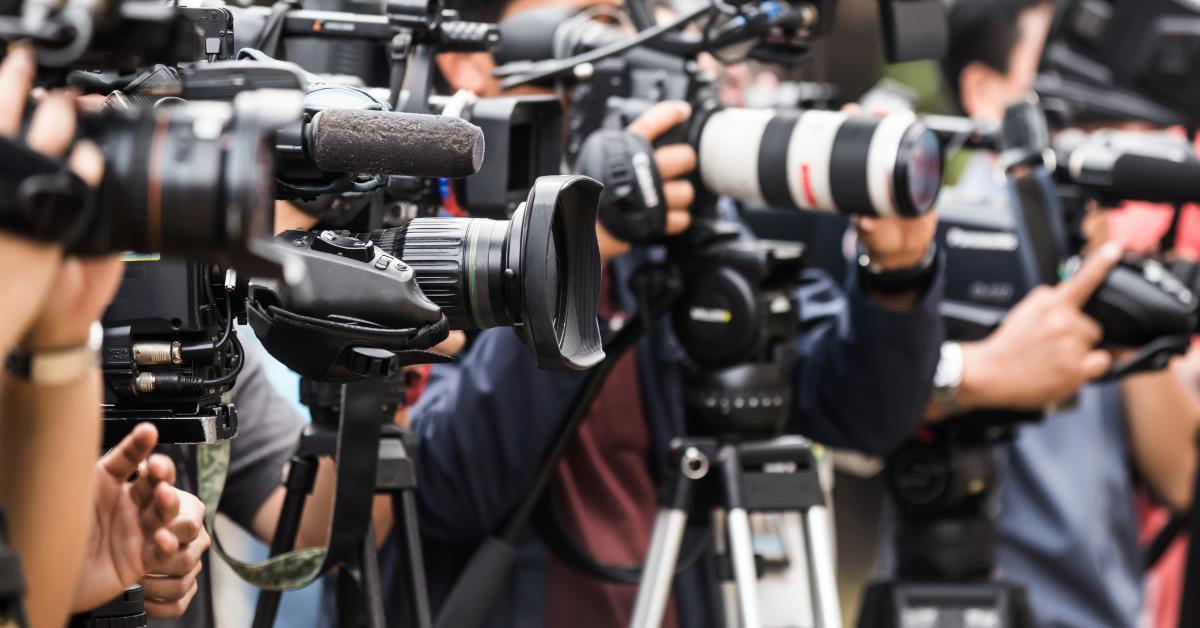
It’s now 2024—the Associated Press says so.
In case a claim was made that it’s still 2023, the Associated Press wants to assure everyone that that is false.
Now, that’s a fact-check.
What isn’t a fact-check is most of what is produced by the fact-check industry. PolitiFact, FactCheck.org, and each of the in-house media organizations like CNN’s Facts First are merely confirmation machines, apparatus that reinforce the original lie, like putting lipstick on a pig.
They are the ultimate deceptive “third party validator.”
To simplify deception detection, here are a few very common and very slippery techniques the fact-checkers use to twist the truth into a lie—and vice versa—to always look out for.
Let’s start with position. Oprah using a space laser to burn down Maui to build a smart city is stupid, but questioning the impact smart cities will have on society is not.
Lumping crazy with sane makes sane look crazy, so having any concerns about fifteen-minute or smart cities is just as crazy as thinking Oprah used her space laser to burn Maui—easy peasy.
Then, there is asking the same people the same question that has been raised by someone else to make sure you get the same answer. That is an incredibly simple ploy:
“Joe says you’re guilty.”
“I am not guilty.”
Fact-check headline: Joe Is a Liar!!
Safety in numbers works well too. A claim is made but called wrong by a bunch of people. The fact-checkers only ask those people whether or not the claim is true, and one or two of their number—typically those with the most letters after their name—confirm their belief that the claim is not true.
This technique is the primary fact-check of everything climate and covid. Egregious terms like “settled science” spring from this, that and that the vast majority of media types did not take even a basic “Golden Book of Science” overview class in school and never asked anyone what exactly the “scientific method” is because it sounded too hard (the same goes for anything involving math).
Throw in the media’s auto-kowtow to those who are heavily credentialed, and an actual fact has almost no chance of making it through—that is, if the media are saying the thing they want to—or are told to—write.
In other words, it’s right because we say it’s right, and look at all of these other people who say it’s right too, so we must be right.
Therefore, you are a liar.
To be crystal clear: science is not a democracy, and people don’t just get together to vote on what’s true and what’s not—just imagine if that’s how it worked.
There is no such thing as “settled science”—science is a process, and you can no more “follow the science” than you can follow a car you are driving.
There is also the idea that odds can—when convenient—be used to denigrate a statement. For example, in the November 23 Republican debate, Florida governor Ron DeSantis said, “Your minor child can go to California without your knowledge or without your consent, and get hormone therapy, puberty blockers and a sex change operation.”
That is in fact true—it unquestionably can happen. However, PolitiFact deemed it “mostly false” because “experts” say it’s unlikely to happen. Whether or not that “unlikely” assertion is true is definitely up for debate, but what is not debatable is that something true does not become “mostly false” because the odds may not be in its favor.
Pedantry is also a go-to play for professional fact-checkers. This involves taking a minor, possibly erroneous detail of a position or statement and making it the main point to discredit the entire statement: Joe got the date of the Allied landing in Normandy wrong so he knows nothing about World War II, and therefore anything he says about it—or any other historical event—is wrong and a lie.
Along these lines, the trick of temporal limiting is used quite often too. Person A says something bad could happen—a fact-checker calls this statement false because that part of the law or regulation doesn’t take effect for five years.
The “Bob” trick is another example of purposeful pedantry. His birth certificate says “Robert” so you are wrong or lying when you call him “Bob.”
A recent example of this is the discussion over the car “kill switch.” The fact-checkers went out of their way to note that that specific term was never used officially by officials, so the facts around the technology are a lie. That it can stop a car while it’s moving is beside the point. I think Sir Humphrey Appleby makes this process perfectly clear.
Fact-checkers—very conveniently—get to choose which facts they check. This is not too much different from deciding where a story went in a newspaper when newspapers were still a thing, but the consistency of fact-checkers in picking facts they do not want to be true to check is overwhelmingly obvious.
Scroll through any of the major fact-check sites, and it becomes readily apparent to anyone with an IQ of room temperature or higher that certain people and topics are checked, um, more rigorously than others.
That phenomenon is somewhat related to the idea of wishful checking. These facts are usually the most convoluted as they start with a preconceived political desire on the part of the checker, and nothing will be allowed to stand in this desire’s way. The fact-checker wants more people to commute by bicycle? There are numbers and studies for that.
In fact, there are numbers and studies to support practically every conceivable position on any issue—you just have to look for them. This is one of the reasons why internet censorship—either outright or through throttling or algorithmic massaging—is so important: the studies and numbers that appear on page one of a search all tend to tilt the same way, and it’s only by clicking through to page 432 that a different detail can be found.
About 90 percent of all Google searchers never leave the first page—there’s a reason companies pay for those spots.
Also, when fact-checkers get lazy or desperate, they “self-source” the supposed truth: “See this link? We already debunked that notion so we don’t have to bother to do it again.”
It doesn’t matter if the original fact-check was accurate or if it really relates to the new issue at hand—it’s been debunked, so move along.
Also, if all else fails, fact-checkers can simply call something a conspiracy theory and be done with it.
The whole idea of fact-checking is rather odd. Created to bolster trust in the media, it has instead contributed to its cratering—in large part because much of the public’s reaction was as follows:
“Umm, isn’t what’s in the paper in the first place supposed to be true? Why are you checking your own stuff? Wouldn’t it be easier to not print falsehoods in the first place?”
An editor once said to me, “Just because someone says something doesn’t mean we have to put it in the paper.”
If only that standard were adhered to today.


